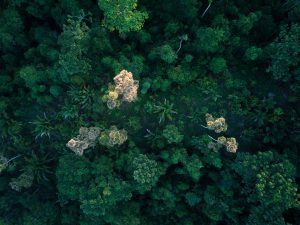The warmest year on record – what can YOU do about it?
2022 was a year marked by extreme weather events.
Europe saw its hottest summer ever with intense heat waves, droughts and wildfires. In fact, the last 8 years have been the warmest on record globally [1]EU’s Copernicus Climate Change Service. With extreme weather events come climate-induced disasters, such as the floods that inundated ⅓ of Pakistan, or the intense drought-driven famine still occurring in the Horn of Africa. These extreme weather events are increasing in both frequency and severity as a result of climate change [2]Climate change likely increased extreme monsoon rainfall flooding highly vulnerable communities in Pakistan (World Weather Attribution, 2022)..
And this year is likely to be no different.
Europe rang in the new year with record temperatures, including 20C in Switzerland on New Year’s Day. We are evidently nearing the 1.5C climate goal set by the Paris agreement and are likely to exceed it in the next decade [3]Data-driven predictions of the time remaining until critical global warming thresholds are reached (PNAS, 2023)..
So what can you do about it?
According to the UN, the general advice for people wanting to limit their individual impact on the climate crisis include things like eating less meat and switching to an electric car.
But we have another one for you.
Support the people at the forefront of the climate crisis, risking their lives to protect crucial rainforest habitat and keeping our Earth cool. Tropical rainforests are vital carbon sinks that regulate our global climate and irreplaceable ecosystems. Keeping rainforests intact can provide 23% of climate mitigation urgently needed to cool our planet. Indigenous peoples and local communities have always protected the rainforest, keeping it healthy for thousands and thousands of years simply by living there. Backing Indigenous peoples and local communities and recognising and respecting their rights is essential in fighting the climate crisis.


Asháninka forest in the Amazon rainforest.
Fighting fires with Indigenous knowledge.
In the Peruvian Amazon, higher temperatures and drier conditions as a result of climate change are leading to an increased number of forest fires. Human activity such as logging and illegal mining also makes these forest fires more likely [4]Explainer: Causes and consequences of Amazon fires and deforestation (Reuters, 2022)..
We collaborate with the Central Asháninka del Río Ene (CARE), an Indigenous-led organisation aiming to fight wildfires before they start. We asked Forest Management Specialist and Consultant on CARE’s Fire Mitigation Project, Hans Buttgenbach Verde, why supporting Indigenous led projects in the fight against climate change is so important.
“Asháninka communities have important knowledge of the management and use of fire that is being lost and in the context of climate change, it will be important to rescue and include this as a measure to better manage fire and national policy.” – Hans Buttgenbach Verde
So yes, it’s important that we all take small individual steps in limiting our environmental impact, but you can also make a huge difference by supporting Indigenous peoples who keep the rainforest standing. Donate here.
References[+]
